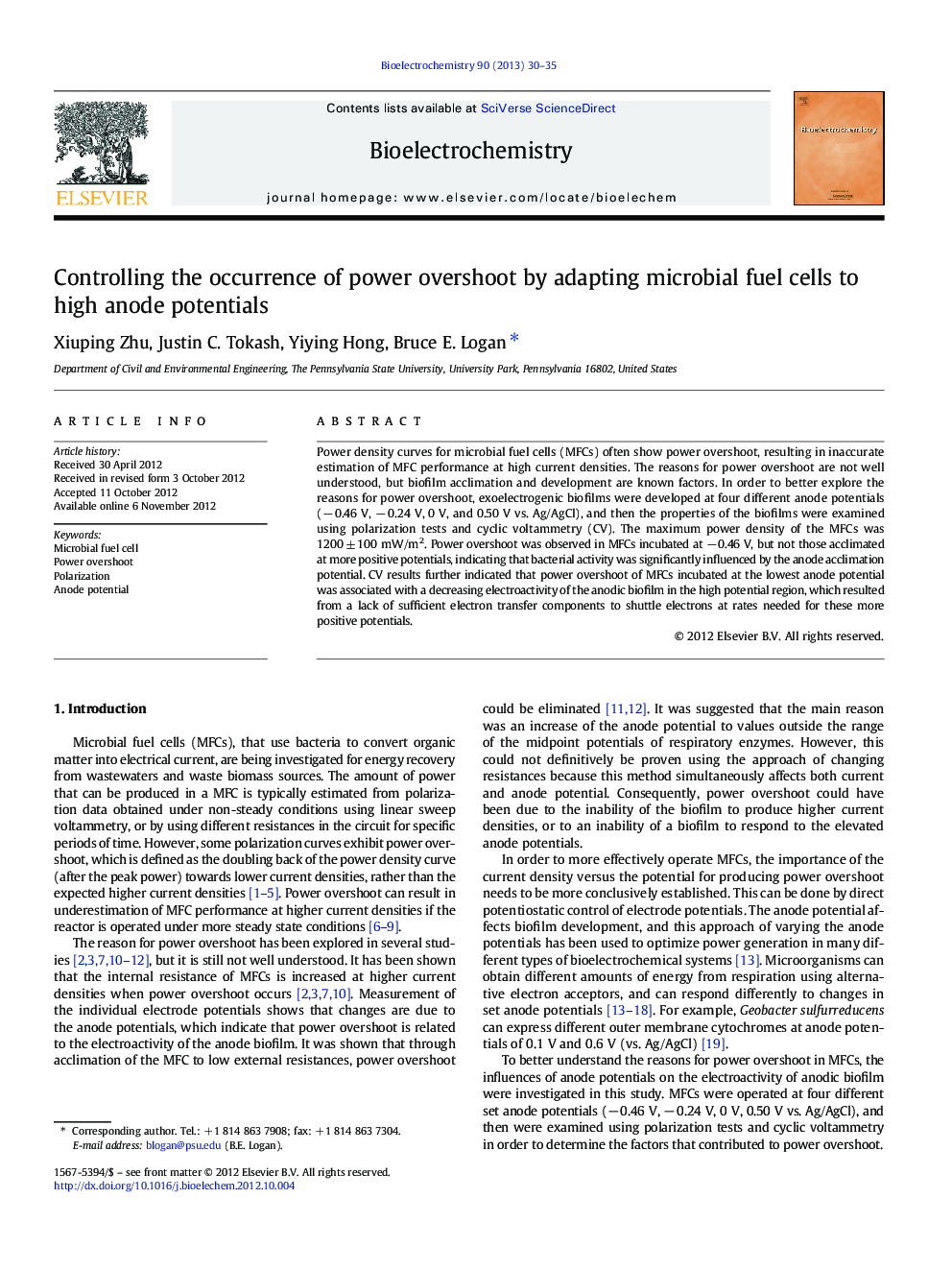| کد مقاله | کد نشریه | سال انتشار | مقاله انگلیسی | نسخه تمام متن |
|---|---|---|---|---|
| 1271575 | 1496922 | 2013 | 6 صفحه PDF | دانلود رایگان |

Power density curves for microbial fuel cells (MFCs) often show power overshoot, resulting in inaccurate estimation of MFC performance at high current densities. The reasons for power overshoot are not well understood, but biofilm acclimation and development are known factors. In order to better explore the reasons for power overshoot, exoelectrogenic biofilms were developed at four different anode potentials (− 0.46 V, − 0.24 V, 0 V, and 0.50 V vs. Ag/AgCl), and then the properties of the biofilms were examined using polarization tests and cyclic voltammetry (CV). The maximum power density of the MFCs was 1200 ± 100 mW/m2. Power overshoot was observed in MFCs incubated at − 0.46 V, but not those acclimated at more positive potentials, indicating that bacterial activity was significantly influenced by the anode acclimation potential. CV results further indicated that power overshoot of MFCs incubated at the lowest anode potential was associated with a decreasing electroactivity of the anodic biofilm in the high potential region, which resulted from a lack of sufficient electron transfer components to shuttle electrons at rates needed for these more positive potentials.
► Power overshoot is when a polarization curve doubles back at higher current.
► Anode potentials were shown to be related to the development of overshoot.
► Overshoot resulted from insufficient electron transfer mediators at higher potentials.
► Acclimation of the biofilm to higher potentials eliminated overshoot.
Journal: Bioelectrochemistry - Volume 90, April 2013, Pages 30–35